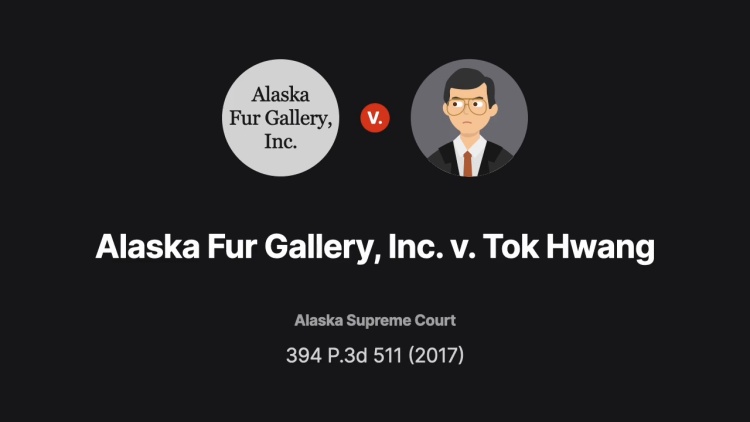Alaska Fur Gallery, Inc. v. Tok Hwang
Alaska Supreme Court
394 P.3d 511 (2017)

- Written by Mary Phelan D'Isa, JD
Facts
Tok Hwang (defendant), who had a leasehold for a commercial lot near the Denali National Park entrance, subleased the property to Alaska Fur Gallery, Inc. (Alaska Fur) (plaintiff) for three summer terms at an annual rent of $55,000. The sublease gave Alaska Fur the option to purchase, specifically providing: “Lease includes an option to purchase premises with lease amount to be applied to negotiated purchase price.” The sublease provided no further provisions regarding the purchase price. To negotiate a price to exercise its option, Alaska Fur hired an appraiser, who appraised the property at $150,000 to $155,000. The appraiser stated that the annual $55,000 rent was very high and above market rate. Alaska Fur stated that it knew the rent was above market rate but accepted the rent because it anticipated exercising its option to purchase. When Alaska Fur attempted to exercise the option, Hwang refused to sell. Alaska Fur sued Hwang for breach of the lease agreement by refusing to negotiate a purchase price. Alaska Fur alleged that it relied on the agreement to purchase when it accepted the rent amount and that Hwang’s refusal to negotiate also breached the covenant of good faith and fair dealing. Hwang moved for summary judgment, claiming that any agreement to negotiate the purchase price was unenforceable.
Rule of Law
Issue
Holding and Reasoning (Winfree, J.)
What to do next…
Here's why 907,000 law students have relied on our case briefs:
- Written by law professors and practitioners, not other law students. 47,100 briefs, keyed to 996 casebooks. Top-notch customer support.
- The right amount of information, includes the facts, issues, rule of law, holding and reasoning, and any concurrences and dissents.
- Access in your classes, works on your mobile and tablet. Massive library of related video lessons and high quality multiple-choice questions.
- Easy to use, uniform format for every case brief. Written in plain English, not in legalese. Our briefs summarize and simplify; they don’t just repeat the court’s language.





